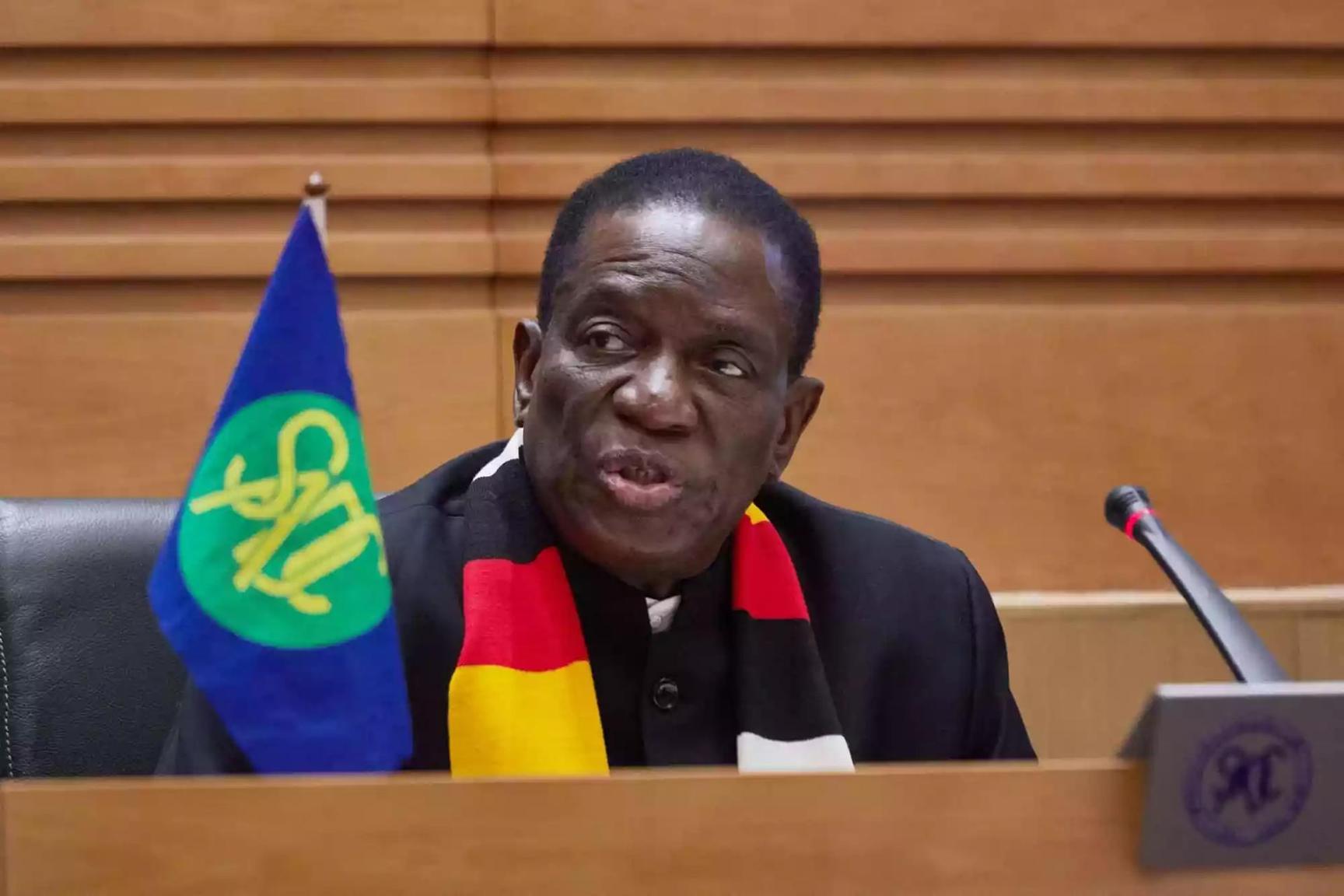Africa-Press – Zimbabwe. PRESIDENT Emmerson Mnangagwa’s tenure as chair of the Southern African Development Community (Sadc) was overshadowed by serious allegations of Zimbabwe’s interference in the elections of neighbouring nations, observers said.
Mnangagwa has officially handed over the chairmanship of the regional bloc to his Madagascan counterpart Andry Rajoelina.
The year he spent at the helm of the 16-member organisation revealed both the potential and limitations of regional diplomacy in addressing southern Africa’s most pressing challenges such as the Democratic Republic of Congo (DRC) conflict.
During an extraordinary summit in Harare, Mnangagwa reaffirmed Sadc’s commitment to supporting DRC’s sovereignty amid intensified fighting.
The conflict had taken a severe toll on the region, with Sadc troops from South Africa and Malawi having been killed in clashes with M23 fighters just before the summit.
This culminated in a virtual extraordinary joint summit of Sadc and the East African Community, where African leaders endorsed a comprehensive peace process.
Despite Mnangagwa’s diplomatic efforts in the DRC crisis, observers said his tenure as Sadc chair was marred by persistent allegations that Zimbabwe and the ruling Zanu PF party had interfered in the electoral processes of neighbouring countries, particularly Mozambique, Botswana and Namibia.
The most serious allegations emerged following Mozambique’s elections.
High Commissioner of Southern Africa Human Rights Lawyers Talent Rusere said there was evidence of Zimbabwe’s interference.
“We have launched an investigation to find out what exactly (transpired) in Mozambique which is something that also led us to understand that there has been interference by the ruling party, which has been sending people to vote from the Zimbabwean side during the Mozambican elections,” Rusere said.
Similar allegations emerged regarding Botswana’s elections, where that country’s former President Ian Khama accused Zanu PF of planning to help the ruling Botswana Democratic Party to win the polls.
In Namibia, opposition parties staged protests against a South African company contracted to print ballot papers for its elections, which they claimed was linked to controversial Zimbabwean tenderpreneur Wicknell Chivayo.
Zimbabwean opposition leader Job Sikhala said Zanu PF was fast becoming a regional cancer.
“Zanu PF’s push for regional recognition has reached desperate levels,” Sikhala said.
The post-election violence in Mozambique presented Mnangagwa with his first major test as Sadc chair.
Mnangagwa, however, faced criticism for prematurely congratulating Frelimo for “resoundingly winning” the elections days before the announcement of official results.
This move was seen by opposition parties and analysts as undermining Sadc’s impartiality.
“Sadc has not been up to its task,” opposition leader Linda Masarira said.
“Sadc has always been lukewarm when it comes to electoral conflict and it really raises eyebrows on Sadc’s commitment to dealing with electoral issues.”
The allegations of electoral interference and Mnangagwa’s approach to regional crises have raised questions about Zimbabwe’s influence in southern Africa and the effectiveness of Sadc under his leadership.
In a post on X (formerly Twitter) on Sunday, Information ministry secretary Ndavaningi Mangwana denied allegations of interference.
“We accept that we do provide thought leadership in the region and we have a lot of clout, but it is preposterous to allege that Zimbabwe determines who governs every country in the region,” he posted.
For More News And Analysis About Zimbabwe Follow Africa-Press






